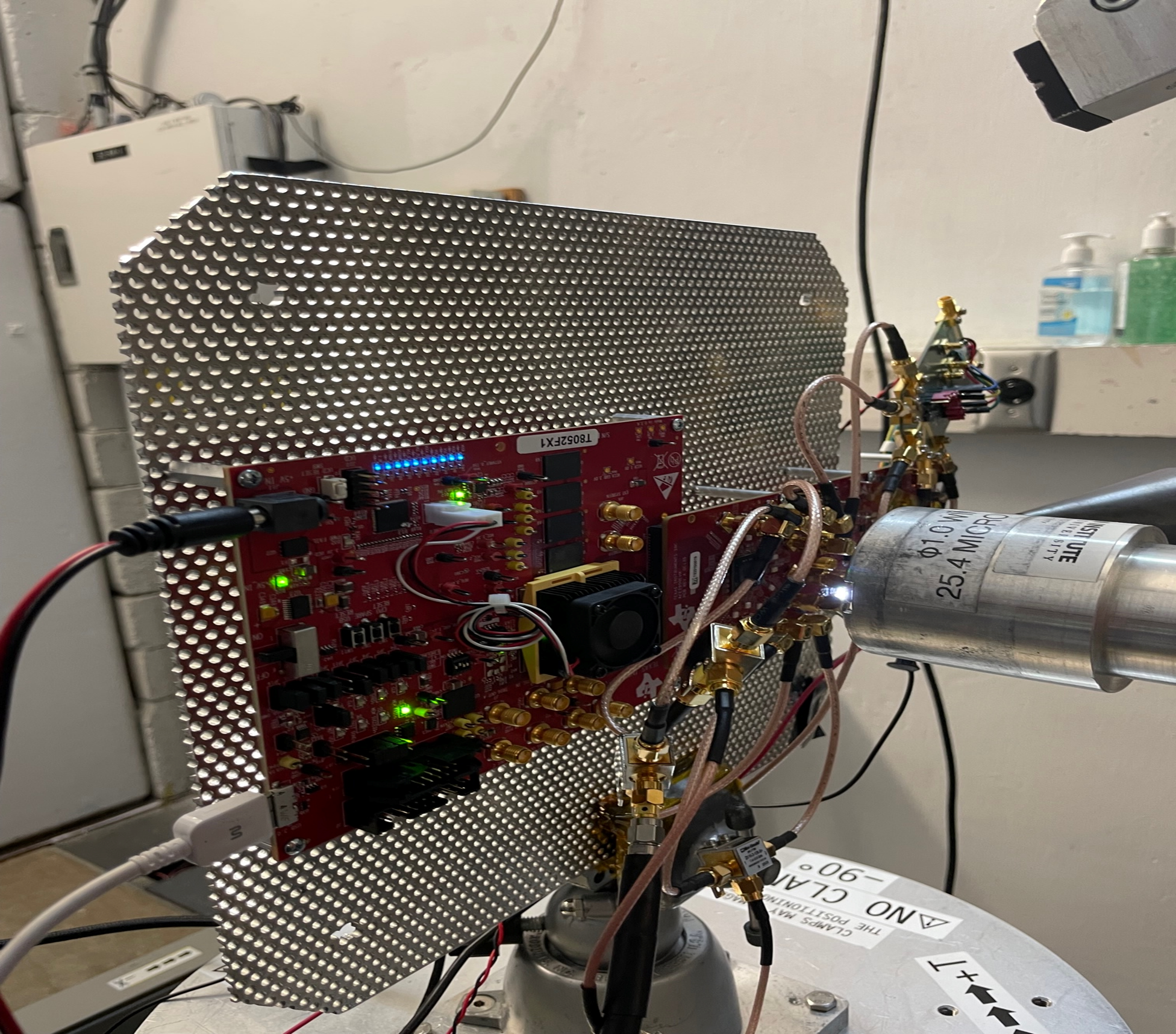SBAK021 December 2024 AFE7950-SP
4 Irradiation Facility and Setup
The heavy-ion species used for the SEE studies on this product were provided and delivered by the TAMU Cyclotron Radiation Effects Facility using a superconducting cyclotron and an advanced Electron Cyclotron Resonance (ECR) ion source. At the fluxes used, ion beams had good flux stability and high irradiation uniformity over a 1in diameter circular cross-sectional area for the in-air station. Uniformity is achieved by magnetic de-focusing. The flux of the beam is regulated over a broad range spanning several orders of magnitude. For this characterization, ion flux of 102 to 103 ions/cm2·s were used to provide heavy-ion fluences of up to 107 ions/cm2 for our runs. Ion uniformity for these experiments were between 94 and 98%. See Section 7 for more details on the ions used and results of the runs.
Figure 4-1 shows the test board used for the experiments at the TAMU facility. Although not visible in this photo, the beam port has a 1-mil Aramica window to allow in-air testing while maintaining the vacuum within the accelerator with only minor ion energy loss. A 40-mm in-air gap between the device and the ion beam port window was maintained at these distances for all runs respective to the ion that was tested.
 Figure 4-1 AFE7950-SP Mounted and
Positioned for Heavy-Ion Exposure
Figure 4-1 AFE7950-SP Mounted and
Positioned for Heavy-Ion Exposure